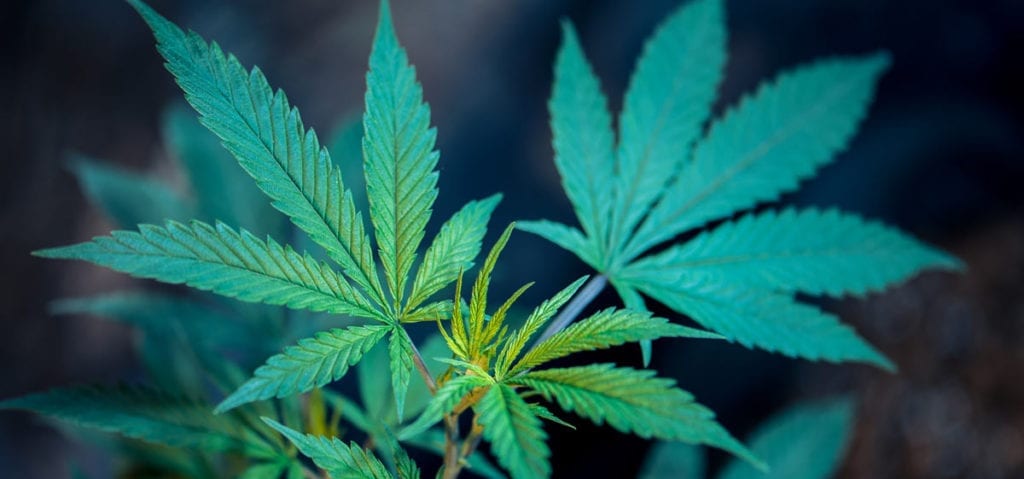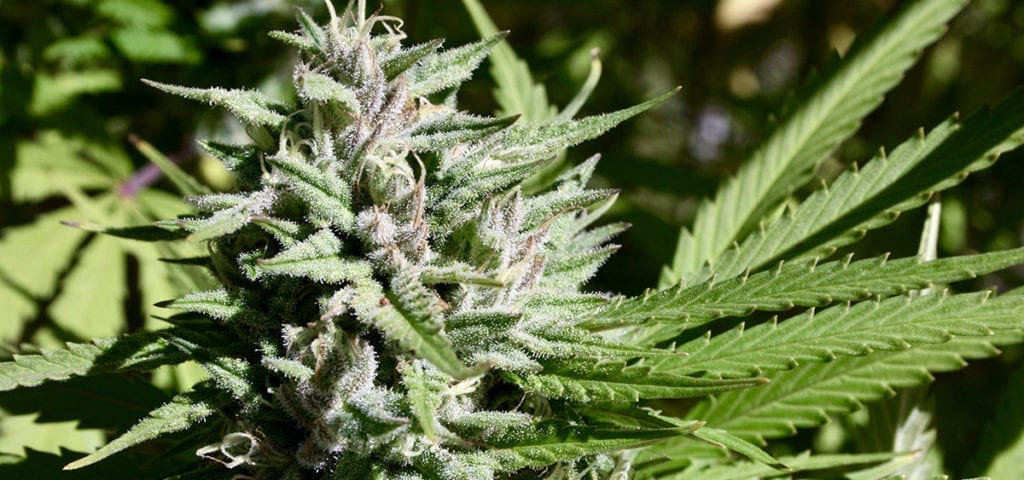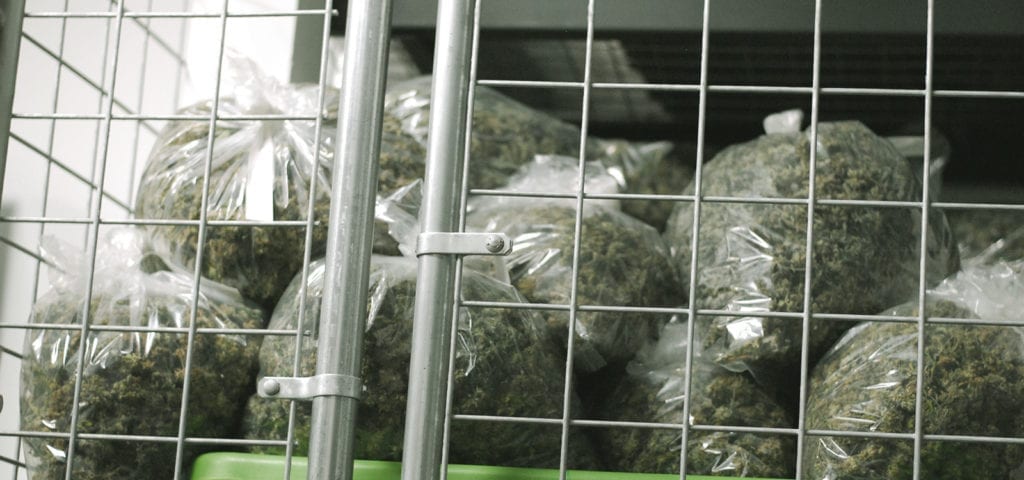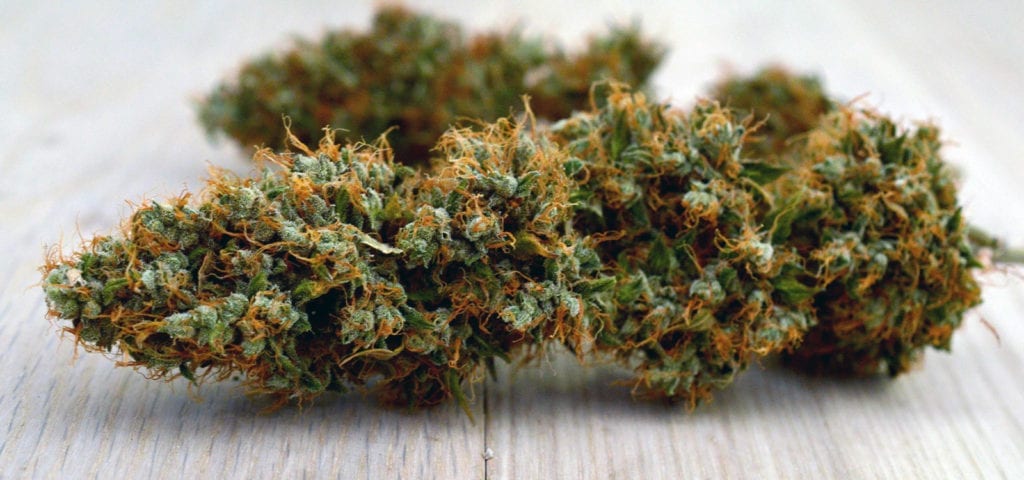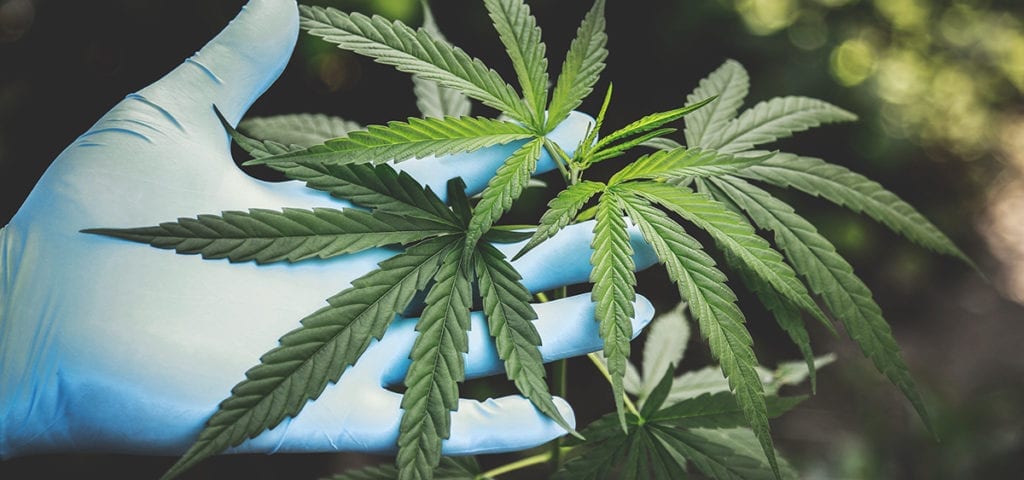Ezra Soiferman is a renowned Montreal-based photographer, documentarian, and worked as the world’s first cannabis artist-in-residence for Tweed. He recently joined our host TG Branfalt for a conversation about how he became familiar with the medicinal qualities of cannabis before the term “medical marijuana” was widely known, what it means to be an “artist-in-residence” for a cannabis brand, and how cannabis legalization has affected culture in Canada.
Listen to the podcast:
Read the transcript:
This episode of the Ganjapreneur Podcast is made possible by 420-friendly service providers in the Ganjapreneur business directory. If you need professional help with your business, from accounting, to legal services, to consulting, marketing, payment processing, or insurance, visit the Ganjapreneur business directory to find service providers who specialize in helping cannabis entrepreneurs like you.
TG Branfalt: Hey there. I’m your host, TG Branfalt, and you are listening to the Ganjapreneur.com Podcast, where we try to bring you actionable information and normalize cannabis through the stories of Ganjapreneuers, activists and industry stakeholders. Today I’m delighted to be joined by Ezra Soiferman. He’s a Canadian artist, photographer, documentarian and cannabis advocate. He’s a former artist in residence for Canadian cannabis company, Tweed, whose work currently appears in their visitor center. His first film, Pressure Drop, released in 1993, told a fictional story of a grandfather who used cannabis for glaucoma, and follows the Pressure Drop Club through their personal journey to treat themselves with medical cannabis. He’s also directed Grass Fed, a documentary focusing on Canadian actor and comedian, Mike Patterson, in his quest to use a cannabis and hemp rich diet to overcome sciatica.
Additionally, Ezra started the Hemp for the Homeless Project, which collects functional and nutritious hemp products from help companies to create Hemp Help Kits for folks in need. Welcome to the show, Ezra. This is the first time you’ve been on. This isn’t the first time we’ve chatted. How are you doing?
Ezra Soiferman: I’m doing fantastic. Thank you so much, TG.
TG Branfalt: I’m super delighted to have you, as I said at the beginning. Before we sort of get into that laundry list of stuff that you do and have done, why don’t you tell us about your background and how you’ve come to focus on cannabis and hemp?
Ezra Soiferman: Well, back in 1993, I was living in New York City and going to NYU Film School. And a buddy of mine, Marc Ostrick and I, we discovered this newspaper article that was all about a woman who was growing cannabis for her son for his medical conditions. This was in ’93 before medical cannabis was a thing. It was certainly being used, but in a limited way across the states and across the world, compared to today. And we kind of capitalized on this, and turned it into a short film, which I’ll tell you more about. But it also opened my eyes to hemp and the versatility and the history and the awesomeness of that sister plant to marijuana.
And there had been some exposure to cannabis back in the day at the end of high school and reading about it, and seeing High Times Magazines at magazine stores in Montreal, where I’m based. It kind of crept up on me. And then once me and Marc got set on the Pressure Drop journey, that’s when everything opened up, and we started researching it and kind of living the experience and seeing how this has changed our world.
TG Branfalt: How’d you find the story for that 1993 film, when medical cannabis, as you said, was not really widely used, and was far less mainstream in the United States?
Ezra Soiferman: Well, there was a newspaper article in the New York Times. And we basically combined that with my grandfather’s story. My late grandfather, Benny Pofelis, he had glaucoma, and never used medical cannabis for his eyes. It wasn’t offered to him and it wasn’t really much talked about or known up in Canada at the time. I certainly didn’t know about it. But then when we saw this article and these other articles about glaucoma, cannabis, we took my grandfather’s story, mixed it in with our imaginations, and created something that was a bit of a fantasy on medical cannabis back then.
And you have to understand. If we think back to ’93 and the ’80s and before that, almost all of the medical, sorry, almost all of the marijuana movies that were being made were either Cheech and Chong films, mentions in comedy movies, Reefer Madness movies. There was not a lot, if anything, going on in the medical marijuana film making scene. And we said, “You know, we’re going to do this.” It’s our thesis movie. And we ended up producing this 18 minute film that came out of left field, took our university by surprise. Then it got a Warner Brothers Pictures award from the school. And it went on to play 25 film festivals around the world. It opened up our careers. I think it’s because we took this, at the time, obscure stigmatized topic and turned it into a comedy that could be accessible from different angles.
We found actors who were seniors, who weren’t using medical cannabis, but we told them about the script. They were willing to take a leap and act in a film like this. And they were actors who were from the old Yiddish theater scene back in New York City. Yeah. We found them through the Second Avenue Deli by asking the maitre d at the restaurant if he knew of any good classic senior Jewish actors. And he said, “Walk down the street to the Hebrew Actors Union.” So we ventured down Second Avenue, and hung a right onto, I think, East Sixth Street, and went upstairs. And there was a whole dinner going on with all these veteran, 70 something and 80 something Jewish actors. And amazingly, that place still existed at the time. And the first woman to approach us at the door asking us why the heck we were there, these two pip squeak young filmmakers. We said, “Do you act?” And she said, “I was in Avalon. You know Betty Levinson? I was in Avalon.”
And sure enough, she was in Avalon for about three seconds onscreen. She did a fantastic job for those three seconds. And she used to be on the Yiddish stage back in the day. And then she found the costar, and we turned this into a really cool, fun movie. And people could still watch it now if they just Google Pressure Drop movie. It’s at pressuredrop.com.
TG Branfalt: You said that it sort of took your school by surprise. What was the reaction at that time?
Ezra Soiferman: Well, first of all, we were supposed to make a three to five minute movie, and we ended up making an 18 minute movie. And showing the script to our teacher, he said, “Look. You guys really seem to have it together. You’ve done your research. You’re two people making a project together. Co-directing can be tough, but you and Marc, if you’re comfortable, I can bend the rules and make it. See what comes of it.” So we weighed the options and we said, “Let’s go for it. This is a once in a lifetime opportunity. And we have a story that we feel is special and needs to be told now.” And we did so.
And then we worked for months editing it with classmates, and put something together that we were ready to show. And right away, like I said, it got the Warner Brothers award. And then it moved on. We hustled. We sent it to the New Orleans Film Festival and out to London and to California, up to Canada. And many of the film festivals accepted it, and then spread the word to other film festivals. It just opened up our careers. Who at the time was making medical marijuana movies? Basically nobody. And we said, “Look. Let’s take this and see where it goes.”
And it wasn’t something where I felt like, okay. Now I’m going to make marijuana movies for the rest of my career. This is it. I still have a huge curiosity for so many things on our planet, as beautiful and troubled as it is. There’s so much to see. And I’m grateful and thrilled to know that I’ve discovered cannabis 25 years ago. And it stuck with me all this time, the passion and the fascination with it hasn’t abated at all. 25 years, you have to understand, that I’m still reading about this every single day. But I found other things too. I love making movies about food, different historical things. I have a medical interest. Cool, random people, underdogs. I’m just grateful that we took Pressure Drop, we ran with it, and it opened things up.
TG Branfalt: More recently, you’ve worked on Grass Fed. How’d you come across Mike Patterson?
Ezra Soiferman: Mike Patterson comes from a long line of Canadian kind of goofball, oddball, big, lovable, friendly, accessible comedians. John Candy comes to mind. And Mike, I had seen him performing here and there over the years. He lived in my neighborhood with his brother for a little while. And then a friend was directing a short film that starred Mike. And I worked on that as a camera guy back, must’ve been about 15 years ago. So we met and talked and hung out during that shoot. And then this was about 2013 or so. Edibles were starting to catch on in California. Colorado would soon have legalized recreational right around that time.
I basically knew that edibles was going to be something that would ramp up rapidly and become a huge option for patients and for consumers. And I wanted to make a TV series about edibles, exploring that world. So I went to a production company in Montreal. It’s a big Canadian production company, and they do really successful and creative stuff. And told them the idea. They loved the idea of doing this kind of survey of the edibles world. But we were trying to focus it down. And we said, “Maybe if we find a host, the host can help us focus it.” I actually put forward Mike’s name as a potential host. They liked the idea. But we had a number of different names. And then coincidentally, a couple of days later, I bumped into Mike Patterson at a theater, the Segal Center in Montreal, where I used to work, after a play I was seeing there. He was in the lobby. He had just finished performing in … I’m forgetting the name. Always be closing. What the heck’s that thing? Anyhow, some awesome play that I’m spacing on.
Some of your listeners will know Always Be Closing. It’s Glengarry Glen Ross. He was starring in that. And Mike and I talked in the lobby. And I said, “Mike, I’ve got this edibles project. And maybe it’s something that would be up your alley.” I was very kind of low key about it. And he said, “Listen, I’ve got a secret. I’m now taking edibles for my sciatica. Nobody knows this except my fiancee because she makes me the edibles. And basically, she’s the only one who knows this, and it’s started to work. I’m able to manage my pain from my sciatica. But I can’t tell my agent because she’s going to not want to send me out on jobs. And acting gigs are going to be skeptical of a guy who has a known medical condition. So I’ve kept it low key. But I have horrible back pain, and every night I’m lying on the floor, Ezra. And I can’t deal with life, but the cannabis has started to help.”
So I said, “Okay. This is perfect. Let me get back to you and see if we can work together.” So I went back to Muse, the production company. They said, “This is amazing. Let’s do it all about Mike and his journey. Forget about a TV series. Let’s make a feature film,” so we did that. We made a feature movie that went on to explore Mike’s journey as he changed his lifestyle, changed his eating habits, changed his medical regime, and became a legitimate legal medical cannabis patient in the Canadian system that had started back in 2000. Now it was 2014, and I was following Mike as he joined the system. And the film is wild because I follow Mike to California, to Colorado, as he learns about what edibles are and how they can help patients.
And then I don’t want to give anything away, and there’s a lot to give away, but I don’t want to. But basically, he turned his life around. And the change that we see happen in his health and his weight and his love life goes from zero to 60 very quickly in that movie. And Grass Fed is something I’m really proud of, and it ended up on television across Canada on the CBC Documentary Channel and Australia. And now it’s on iTunes and Google Play. And it’s had a beautiful run, and I loved working with Mike. He’s a riot, the guy.
TG Branfalt: In the United States, we recently, the Superbowl just happened. And they actually blocked a medical cannabis commercial. Meanwhile, they’re inundating us with booze ads. We get a little bit of the culture with Vice, and CNN with Gupta has done some stuff on medical cannabis. However, it’s very unlikely that you’re going to see sort of feature films well-placed on any mainstream American channel. How’d Grass Fed end up on the CBC Documentary Channel? What was that process like?
Ezra Soiferman: Well, like I said, my producer was very talented in what they do. A producer of a movie basically takes the idea and they find the director. They find the actors. They find the money and they find the broadcasters. In my case, because it’s a documentary, we didn’t really have to find too many actors, or any at all other than the comedian. They found the director in me because I approached them. The last thing was finding someone who would show this movie and help to get it funded and produced. And they basically had a meeting with an executive at the Documentary Channel. And he loved the idea. And he basically recognized that edibles were coming. Edibles were not yet legal in Canada for patients to purchase. They’re still not legal for … You can’t buy cannabis brownies or anything like that as a medical patient through the licensed producers in Canada, still.
However, you can as a patient now make your own edibles at home, or in some cases, have someone make it for you. But we’re still not quite there yet. However, this coming October, Canada will have edibles and extracts and other things legal in shops across the country for recreational. And medical will follow. And patients can go and buy edibles then. So a lot has changed since I made the movie, but still many things sadly have not. But you know cannabis. It’s an ever evolving thing. And we never know what tomorrow brings or what October brings. So I’m really excited that Grass Fed was a little bit ahead of the curve. And now edibles have continued to grow in popularity. And it’s helping people.
TG Branfalt: I mean, you sort of have stayed ahead of this cannabis curve throughout your career. When we met in Burlington, Vermont last year, you were still an artist in residence with Tweed, which isn’t something that a lot of people, if anyone else, can say. Could you explain what that actually means and what you did in that role? And how did you land such a cushy gig? Pardon the pun.
Ezra Soiferman: Ha. Basically, one evening in Montreal, I had this brain wave. And I said to myself, “You know, there’s all these places that have artists in residence.” And I see them as an artist, as a filmmaker, and a photographer. I read these postings in newspapers, or blogs, magazines, about people who are selected as the artist in residence at a museum, at a gallery, sometimes at a company. And I was always fascinated by the process of a corporation taking an artist under its wing and supporting him or her to create their art, often doing so in a completely independent, hands off way. What a dream for an artist to have that kind of support. And it reminds me of back in the day when the painters, the famous painters, were in some cases supported by wealthy families, or people with means to do such a thing. They would support their art.
And I simply believe more artists should have this access, so I had this idea. I’ve never seen an artist in residence featured at a marijuana company. The closest thing was back about 10 years ago, a hemp company in Canada had a hemp fueled filmmaker. That was the only thing that I’d ever seen similar. And by coincidence, that hemp fueled filmmaker was me. So other than me, I hadn’t seen anyone as an artist be supported by a cannabis company. So I said, “Okay. I’m going to make a proposal and pitch this,” to what at the time, and still to this day was my favorite cannabis company, legal cannabis company, which was Tweed, which is owned by or part of the umbrella of Canopy Growth, which is a massive cannabis company that has reach around the world. They’re in about 16 countries now.
And I loved the Tweed brand from day one. When I read the first press release about Tweed in early 2014, I knew that they had a story. And I love stories as a filmmaker. And I could tell right away that these guys were thinking about more than just growing marijuana legally. They wanted to create a concept, lifestyle, and I guess a bit of a cultural fingerprint on the cannabis scene up in Canada. And they first leased the old Hershey’s chocolate factory. Then they ended up buying it. And now they’ve expanded it, so it’s a massive campus that they have in a small town in Ontario called Smiths Falls. And when I read that first press release back in 2014, I said, “I want to somehow be in the constellation of this company, in their world.”
And I wrote a letter to the CEO back then. I sent him an old Hershey’s calendar that I found at a garage sale. And just like I liked to do even when I was a teenager, I just kind of approached these companies that I respect, and I try to tell them that I dig what they’re doing. So I did, basically for several months there was no further contact with the company other than me following what they were doing and how they were growing so quickly. And then one night, I had this idea to pitch them that they should be the world’s first company to have an artist in residence, and I should be the first artist in residence. So I didn’t do it. I didn’t send it off. I told my best friend, one of my best friends, Paul Flicker. I said, “Paul,” and Paul’s one of the guys in this world that has the best gut feelings about everything. He’s been right about virtually everything I’ve ever asked the guy in my life, except one thing. I said, “You think Trump’s going to win the election?” He just said, “Not a chance. Not a chance.” Other than that, Paul has had impeccable foresight.
And I said, “Paul, what do you think of this idea?” And he said, “It’s genius. There’s nobody else who could do this. Tweed is perfect. You’re perfect for it with your cannabis background and your film making career, your photographs. Go for it.” So I wrote up this one page pitch, and I got it ready to send to the guy who was then the president of the company, who I had filmed with Mike Patterson a few months earlier when I called Tweed and said, “Can I film this guy who wants to see where his cannabis is being grown?” I followed Mike Patterson out there and we filmed with a guy named Mark Zekulin, who was then the head of legal affairs at Tweed. Then he went on to become the president.
And I waited with that proposal for artist in residence. I waited until he saw Grass Fed, which was about to air on television. I wanted to make sure that the guy liked it, and that I didn’t offend them or portray them in some light that they thought wasn’t right. Anyhow, long story short, two days later after the movie aired across Canada, Mark writes me this email. Wow. We loved your movie. Thank you so much for showing this patient at our place, and if there’s ever any way we could help you out in the future, our door is open. Boom. I run down to the local courier office, and I sent off his package with that proposal and with copies of my movies and with photographs. And I pitched them this concept of being the world’s first cannabis company to have an artist in residence, and how it would help them get the word of their company out there, how it would support an artist, how it would help the arts and help cannabis and help me get the word out about hemp and medical cannabis, et cetera.
Anyhow, they loved the idea. A few months later, we had a deal signed. And they basically financed new equipment and travel. I went to about 12 different cities over that period of one year. They gave me an honorarium. And they made me feel like part of the team and have me essentially, literally carte blanche to do whatever photography I wanted. It wasn’t even just cannabis photography. Not only did I have access to film in their facilities, but I also had access to their staff and to photograph the people who work there, and photograph the … I even went down to Jamaica with some of their staff and photographed them doing kind of scouting down there. They’ve since opened up a facility in Jamaica. And I traveled to all these different cities doing stuff about cannabis, about cars, about guitars, about you name it. I was out there making my art and supported by essentially the world’s largest cannabis company. A dream come true.
TG Branfalt: You take incredible photos. I’m lucky enough to have one hanging in my office. And it’s unfortunate that this isn’t a video podcast, so we could display some of these things while you’re talking. But people can find them. We’ll get to that a little bit later on where they can find your stuff. But what does it mean to you as an artist to now have your work featured in the visitors’ center of the world’s largest cannabis firm?
Ezra Soiferman: A complete honor. They called me one day last August or so and said, “Listen, we want to feature your art upstairs in the new visitors’ center in Smiths Falls, Ontario,” which is about 45 minutes out of Ottawa, a couple hours out of Toronto, a couple hours out of Montreal, kind of in the middle of nowhere in Ontario, a town of 10,000 people. They built this visitors’ center in the old Hershey’s chocolate factory’s visitor center, where Canadians … You have to understand. This visitors’ center was the biggest visitors’ center in all of Canada. People would go there and buy bags of broken chocolate. You can ask nearly any Canadian, especially nearly anyone from Ontario, and they will know that place. And they will have gone there when they were a kid. And now they say, “Oh my God. That’s now a cannabis visitors’ center.” And sure enough, it is. It’s basically part museum, part coffee shop, part chocolate factory, part grow operation. There’s a terpene center where you can go and smell all these different terpenes.
TG Branfalt: No way.
Ezra Soiferman: There’s staff taking you on tours. And my work is now upstairs on the catwalk area. When you walk around and look down at the chocolate edibles facility, and then you look on the other side, you see the grow rooms, my art leads you through it and helps to show additional things from the factory that the guests can’t see through the windows. There’s pictures of the vaults and of the mother room and of the staff and of the R and D labs. And 25 large print frames of mine are up there.
And it’s been like I’m still kind of dreaming because I drive down to this place once a month, twice a month, for meetings and to meet people and stuff, to see the new things going on there at the factory. But I also then go visit the visitors’ center. And I walk in, and it’s like a little cannabis museum with my stuff as the first artist featured there, so I’m totally blown away by it. And the feedback has been amazing. People can see a lot of those pictures can be seen in the video that I made summing up my year as artist in residence. It’s kind of like a greatest hits video called Ez in Res. And that’s on YouTube, and it’s on my site, et cetera. It’s been wild.
TG Branfalt: Is there sort of this double layer of excitement for you, being that it’s hanging in this place that you visited when you were younger?
Ezra Soiferman: Well, I didn’t actually go there when I was younger.
TG Branfalt: You’re the only Canadian that didn’t go there when you were a child.
Ezra Soiferman: I think there were three Quebecers who didn’t go, and I’m one of those. And I think that’s it. But I had heard as a kid, I always heard, “Yeah. We got this bag of chocolate for $5. We got about $50 worth of chocolate.” It’s all broken and half melted, but it’s delicious.
TG Branfalt: In 2007, you launched your Hemp for the Homeless program. Tell me about the conception of that program and how you’ve kept it going for more than a decade.
Ezra Soiferman: Okay. This filmmaker in Montreal, who was an acquaintance of mine, had a movie about a penny. And he was going to bring this penny to life. And he wanted to get a name for the penny who was going to star in the movie. It was this whole crazy thing. He said, “I’m doing a contest. And anyone who could give me the name that sticks for the penny in the movie will win 500 bucks.” I had never heard of anything like a contest like this. First of all, for an independent filmmaker to be giving away $500, that alone is like, whoa. What’s up here? Someone doesn’t have a good business model. Anyhow, he did it. And he made this contest. And sure enough, I applied with a couple of different names. And I love words. That’s one of my passions, words, and languages and coming up with names. And people know me for that. I’ve given people titles for their movies. And I pick interesting titles for my movies.
TG Branfalt: Anyone who follows you on social media can definitely attest to that.
Ezra Soiferman: Yeah. Thank you. I try to add to my images with words and tricks of phrases that are hopefully almost as clever, or as interesting to read or look at as my pictures. What do you call it? It’s a multi pronged approach I take. Anyhow, I went for it with a name. My name was chosen. The name that I submitted was Juan, like J-U-A-N, Redcent. Juan Redcent. And he picked it. I got 500 bucks. And I said to myself, “I don’t want to buy myself $500 worth of stuff that this poor filmmaker gave me.” I accept it, but I want to put it to good use. So at the time, this was 2007. I had already been into hemp. And hemp was pretty much always my main focus, more than medical cannabis, more than recreational. I’m all in on hemp, and was from day one. The versatility of this thing, the environmental aspects of hemp, the historical aspects, the cultural aspects, it covers all the bases. And it’s still so little known and little used that I see massive potential here.
I took the $500 and I said, “I’m going to use that to help homeless people in Montreal.” And I called up all these hemp companies that I know in the states and Canada, and got all this hemp stuff sent to me, soaps from Dr. Bonner’s, and T-shirts from Hemp Town in British Columbia, and hemp lip balm from Eco Lips down in the states, on and on and on. And I made these hemp tote bags filled with hemp stuff that was functional and useful. And ultimately, I like to think that 50 people, who didn’t have all these T-shirts and socks and functional things, that it helped them out in some way. Look, 50 people benefited. It’s not at all making much of a dent in the crisis in Montreal and Colorado and across the states and Canada that we have with homelessness. But it’s my little part to help out and to help show that hemp can pitch in. Where anything else can, hemp can join in, if not take over.
I did that in 2007. Then I did it again at the NOCO Hemp Expo in Colorado in 2017, and then again in 2018. And now I’m heading back this year. We’re going to do some more help kits for people in Colorado, and on and on it goes. I want to grow it. I want it to be something that more hemp companies can get involved with. I want other people in other industries to see this and make them think about how they could help homelessness. And little by little, we chip away, and hopefully big strides.
TG Branfalt: Well, I want to switch gears a little bit and talk to you about policy. Last year, Canada legalized cannabis for adults use. Can you tell me how it has or hasn’t changed the life of the average Canadian citizen?
Ezra Soiferman: Wow. If you would’ve asked me before October 2018 when it was legalized how it would change things, I would’ve thought then that it would’ve been more of an outward change, that we would’ve seen more people smoking on the streets, or talking about it, or having cannabis themed parties. But to be totally honest, as great as it is that cannabis is now legal for recreational purposes and adult use purposes in Canada, when you walk around the streets, you don’t see any difference other than the four cannabis stores that are in the city of Montreal. So there’s really not much outwardly. It’s not like walking down Broadway in Colorado, or down Los Angeles, West Hollywood. You just don’t see all those dispensaries, so it’s pretty low key on the streets.
Montreal has always been a place where you’ll see people smoking on streets, like they’re smoking a joint, or a vape. And you’ll smell it. But I honestly have not seen a huge difference in that. People have talked about it. The press has covered it. It’s definitely something that made a big splash, but the sky has not fallen. We’re not seeing people crashing their cars into fire hydrants. I’m not hearing people complaining. There have not been line ups at the hospitals. I think it’s kind of business as usual, but now they’re selling cannabis online and in stores. And I think it’s a fantastic thing.
TG Branfalt: You’d mentioned earlier that edibles still aren’t available. What do you think about the law as it stands right now? What needs to be addressed to make it better in your estimation?
Ezra Soiferman: Wow. Well, it’s a big set of laws. It’s a big bill that was put forward. And there’s all sorts of new rules and revamp of old rules. It’s pretty mammoth of how complex it is, for driving and for the ages of who can consume. I think it’s imperfect. I think some of it is problematic. In the province of Quebec, where I live, you cannot grow four plants at home, as you can in virtually every other province and territory of Canada. You can’t grow any plants at home. The province of Quebec wants to make 21 and over instead of 18 and over. Some people are calling it … Canadians across Canada have called it prohibition 2.0.
TG Branfalt: Interesting.
Ezra Soiferman: Yeah, because there are so many new rules around this stuff. You can’t smoke it here, and you can’t take it there. To some extent, you could call it that. And another way of looking at it is, look, it is actually legal. There are many legal things that one can do with the plant now. And that’s a big, big step. And we’ve opened the door now to making other additions to the rules, or modifications. Things, I imagine, will evolve. And as an old boss of mine said when things were chaotic, it’s a work in progress. And we’re going to get it right. Hopefully, that the direction Canada’s taking. I think it’s a huge step that we’ve taken. It is not perfect. That’s my own personal opinion. But we’re getting there.
TG Branfalt: What’s been your experience as a consumer living in a now legal market?
Ezra Soiferman: Well, I’ve gone down to see the stores in Montreal. There are four stores across the city, spread pretty widely, so that it gives access to people across the town. And it’s interesting. When you go into a dispensary in Colorado, you’re like a kid in a cannabis factory, or a kid in a candy factory, with all the selection. And it has not gone as smooth in Canada with the roll out, so you do see empty shelves. And you see line ups at the door sometimes. The first month, there were line ups pretty much every morning before the stores opened. So much so, they couldn’t keep the shelves stocked. And they ended up closing the Quebec stores, and they’re still closed every Monday, Tuesday and Wednesday. It’s a little ridiculous that we have these very handsome shops. There’s all sorts of wood shelving, and there’s tons of staff, lots of customer service. They’re wearing these beautiful aprons with the logo of the Quebec SQDC, which is the name of our cannabis liquor, not liquor, the cannabis commission.
They’ve got these aprons on. And they’ve got some nice products from some of the big and medium sized producers, even smaller ones. Customers seem to be happy. Every time I walk by or walk into one of those places, there’s still crowds in there. It’s nice to see a business thriving. Don’t get me wrong. But it’s been a little rock and roll the past few months since it opened. It hasn’t been perfect. But I know that people are going back. Friends, or strangers even, that I’ve discussed the topic with have said, that they’ve gone into check with these stores, and they were pretty impressed. So we’re getting there.
TG Branfalt: On your end, and I only know what I know of you, was there any … When those laws passed, were you able to sort of take a deep breath and be like, “I’m not a criminal anymore”?
Ezra Soiferman: Yeah, a really deep breath. Absolutely. I literally cried several times along the journey towards legalization because this is something that’s so close to my heart, and something I’ve been so fascinated with on a global scale, not just Canada, but whenever there’s a big stride in legalization, or in science even, medicine with cannabis, or some brilliant new product that comes out that’s hemp or technology. It warms my heart because it’s like a child of mine, this plant. I like to see it growing up. And I missed the first 10,000 years of its history. But now that I jumped in as a person on this planet to witness this, it always makes me happy to see. What can I say? Legalization is a big step that Canada took. It was pretty ballsy and-
TG Branfalt: They were catching flack from the UN.
Ezra Soiferman: Catching flack from everybody pretty much, except for that percentage of the population who voted the liberals and Justin Trudeau in to do this. And I was following the elections closely. And when he won, and he said, “We’re going to legalize cannabis in Canada,” that was one time that I shed a tear. And then when the laws started passing and going through the Senate, that whole journey was very fraught with ups and downs. It was a roller coaster. And we really didn’t know if it was actually going to happen. There were all sorts of times where it was questionable as whether this would pass. Sure enough, it did pass. And it has arrived. And the sky hasn’t fallen. And people have generally, from those I’ve talked to, seem to be thumbs up. We’ve done this and now life goes on. But now we have the ability to consume without being a criminal.
TG Branfalt: In our conversations, you’ve said that you’re obsessed with hemp. Last year, via the farm bill in the US, hemp was finally legalized, although there’s been some restrictions. There’s still been some police, overzealous police officers are finding truckloads of hemp in the US, and they arrest the driver. And then they have to do this expensive testing, and so on and so forth. Was that US legalization of hemp, for you, where does that fall in sort of the importance scale for the significant scale for you?
Ezra Soiferman: Big, big thing. And the fact that it was Trump who signed it in, was, I don’t know if ironic is the right word, but certainly strange. There’s a lot of people who have things to say about him. And one thing that they will be able to say down the road is that hemp became legal under Trump. So for what it’s worth, that was super interesting to watch happen. And I was really excited about this farm bill as that was making its way through the system in the states. I knew it would be a big thing. Sure enough, it is a big thing. And it opens the doors to absolutely everything and anything on the hemp front because as we Canadians know, when you Americans go for it, you go for it. So hemp could turn into what I predicted years ago.
I’ve said for many years that I think hemp is going to be the next digital. Remember back in the ’80s, digital this and digital that. And then I said, “When we hit peak digital, it’ll be when there’s the digital toaster.” And sure enough, now my toaster has digital circuits in it. They sell toasters that’s digital. I think digital, the whole fascination with, oh, it’s digital, it’s digital. I think, I think, I suspect, that hemp will be the next digital, where people are going to say, “Yeah. I got a hemp T-shirt. I got my hemp in my car panels in my car. And I got a hemp hat. And I got this. And I eat hemp for breakfast,” because it could touch all the things that digital can touch, which is basically anything.
There’s nothing on the planet, as far as I’ve found, that’s as versatile as hemp, other than maybe water, or air. But you can’t build a table out of air. And you can’t make a T-shirt out of water itself. You can’t eat water as nutrition, but yet you can make a table out of hemp. You can drink hemp. You can make a T-shirt out of it. It’s so versatile that the fact that we’re overlooking it … Hemp is only in about 4% or 5% of fridges or pantries in Canada and the states. There’s only 5% of people who have it at home. As that starts to ramp up and people start to discover it and to have it in more of their mainstream foods and more of their fridges and pantries, which I think will be happening, can you imagine the billions flowing into this, and the interest and the product development? And the usefulness of this plant will finally be appreciated, exploited, and understood.
And I think it will be for the better. I honestly think that the hemp ramp up will be for the better for everybody. It’s kind of inevitable that a plant with such versatility shouldn’t help make society a better place. It does so many other things. Why shouldn’t it do that? And then you look beyond that, it could help with climate change. It could help with social issues and with jobs. The list goes on and on and on. It’s not just about the fact that you can make running shoes out of it, or bags. But it could be good for society in general. The farm bill, to answer your question, was massive.
There are still things to iron out about it with CBD. And is it a food? Is it a medicine? But they’re going to figure it out. And the money is there to be made. And the people are out there to buy it. And as long as we educate the average person as to what hemp actually is, then we have a chance of growing more of it and selling more of it, because if we don’t tell people what hemp is, they’re still going to be in the dark about it. They’re still going to have a stigma around it. And it won’t quite work. But if we got the education, and we’ve got the product development, we’ve got good luck, we’ve got good investment, limitless. Potentially, even bigger than digital.
TG Branfalt: You’re a heck of an advocate for hemp. When I met you in Burlington, from head to toe, you were in hemp clothing. I’ve got to ask you. What’s your prized hemp possession?
Ezra Soiferman: Wow. I have all sorts of hemp stuff in my place because I’m a collector of this too. I have boxes filled with samples of different hemp things that I will bring to a lecture, or go through and organize. Sometimes I’ll show stuff online from the collection. My wardrobe is all hemp. I’ve got jackets and hats, shoes and bags, hand creams and lotions. To pick my favorite one thing, one thing that comes to mind that’s top of mind, pardon the pun, is a yarmulke, a kippah, a Jewish ceremonial head covering that I wore at my wedding that I had custom made, custom made by this dude, who was a third generation hat maker. And I photographed the process.
And I got him the fabric from Enviro Textiles in Colorado, from those guys who are geniuses of hemp fabric, Summer and Barbara Filippone. I got him the fabric. It’s this chocolate brown herringbone material. And he made this beautiful design for a kippah. And I wore it at my wedding, and gave these hemp kippahs out to all the people who were at the wedding too. And to this day, the kippah’s right on the shelf near me. I’m feeling it now as I’m talking. It’s in perfect condition, and I’ve worn it to many funerals and bar mitzvahs and weddings. It actually fared a lot better than my marriage did. Hey, that’s life, and I’m still on very good terms with my ex wife. And I’m on very good terms with hemp to this day, so there’s no problem.
TG Branfalt: That’s hilarious, Ez. What advice would you have for young artists who are considering sort of taking the path that you did, and sort of centering their art, or trying to sort of breakthrough with their art, focused on this industry or this culture?
Ezra Soiferman: Go for it. There is really so much to be done to bring arts to cannabis, and to bring cannabis to the arts. Art is tens of thousands of years old, as well as hemp. They both existed side by side, being something that for humankind was important and nourishing and appreciated. And when I dreamed up the artist in residence gig for myself with Tweed and Canopy Growth, I knew that I was onto something. I knew that I wasn’t see the arts represented in the cannabis industry very much, or at all almost. And I knew that I was the guy to give it a little kick and see where I could take it. And I’m really, really pleased with how it’s gone. And I’ve told artists along the way to go for it too, to reach out to cannabis companies, to hemp companies, and to offer to collaborate, to make partnerships, to do special events, to put art on their walls. There’s so much that could be done to put more color into the cannabis world.
Right now, the focus with cannabis, it’s money. It’s products. It’s growth. But we have to remember one thing that ultimately, this plant brings so much fun to people, so much enjoyment, pleasure. It takes away pain. It inspires. And people can’t lose sight of the fun aspect of cannabis, the colorful aspect. And I think the arts is a perfect vehicle to bring that over and have it be appreciated by those companies and by their customers and their clients, and make this cannabis space, this cannabis world, and the legal world on the streets, a more artful place. It’s up to the artists to do that, and it’s up to the cannabis companies to be open and inviting to these people who have the goods to share.
TG Branfalt: Well, this has been a lot of fun, man. You say that the cannabis industry is fun. This is one of the more fun interviews I’ve had. I’m lucky to know you and to be able to have this opportunity, and to have met you. We’re just across the border from each other now, so I’m sure that we’ll see each other in person soon. But I really appreciate you coming on the show. Where can people find out more about you, follow you, your social media, all that stuff?
Ezra Soiferman: All right. Well, thank you so much, TG, first before I give out any web addresses and stuff. It’s really been a pleasure to talk to you. It’s always, for me, it’s always an honor to share my cannabis experience and to talk about hemp and all this stuff. At a party, people will ask me a question, and then 30 minutes later, we’re still talking. And it’s me who’s saying, “Listen, I don’t want to talk your ear off.” And they’re like, “No, tell me more. Tell me more.” I never get tired of talking of this stuff. And when you and your podcast invited me on, I was really happy to hear that. And it’s great to be able to share with you and your listeners and to spread the word a little bit more because we all have to do our part to get the word out there.
As far as seeing my stuff, it’s on the web everywhere and anywhere. But the best place to learn more is to go to my own personal website, which is ezrasoiferman.com. E-Z-R-A-S-O-I-F-E-R-M-A-N, Soiferman. I would’ve been Hempferman, but that was taken. Anyhow, ezrasoiferman.com. And there, you can look into my photographs, my movies. I have a YouTube, Ezra Soiferman also. I’m big on Instagram, @EzraSoiferman. I’m on Facebook. People are welcome to join me on Facebook. I’m big into telepathy. People could contact me anytime. I answer emails. Every email gets answered. I’m open, and I love you guys. And thank you so much.
TG Branfalt: Thank you. And you’re one of my Facebook feed, when I see your stuff, your faces, the back of the heads, just some of your series are really excellent, even when they’re not hemp related. Once again, thank you so much for coming on the show. It’s been great. I can’t thank you enough.
Ezra Soiferman: My pleasure, TG. Thank you so much. And all the best to you and to your fellow Americans. I love you guys. And I want to see you in Canada, and I want to see you in the states. And I want us all to do more great things in the world of our favorite vegetable, cannabis.
TG Branfalt: Thank you. You can find more episodes of the Ganjapreneur.com Podcast in the podcast section of Ganjapreneur.com and in the Apple iTunes store. On the Ganjapreneur.com website, you will find the latest cannabis news and cannabis jobs updated daily, along with transcripts of this podcast. You can also download the Ganjapreneur.com app in iTunes and Google Play. This episode was engineered by Trim Media House. I’ve been your host, TG Branfalt.

